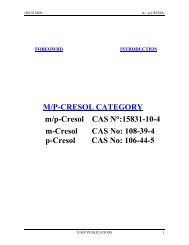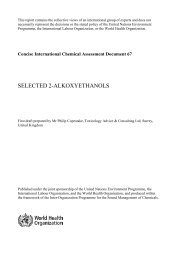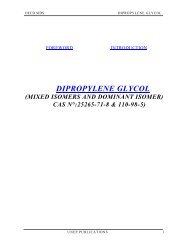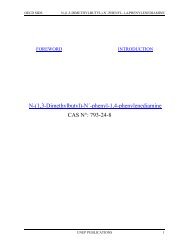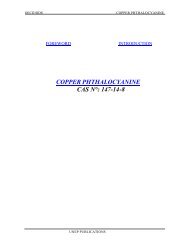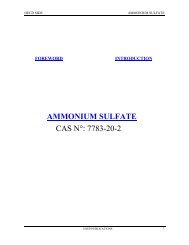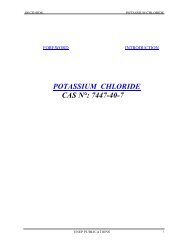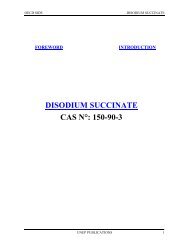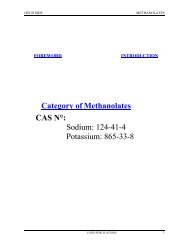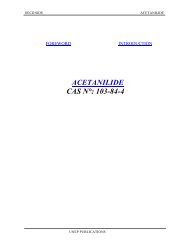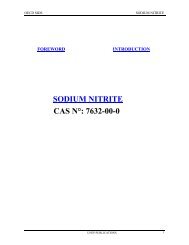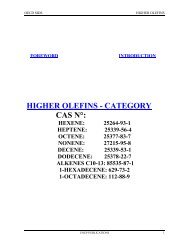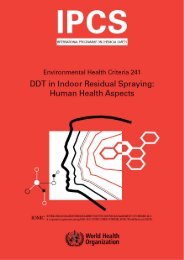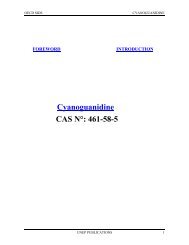TEXANOL CAS N°: 25265-77-4
TEXANOL CAS N°: 25265-77-4
TEXANOL CAS N°: 25265-77-4
Create successful ePaper yourself
Turn your PDF publications into a flip-book with our unique Google optimized e-Paper software.
84<br />
Biodegradation<br />
Study<br />
End Point : BIODEGRADATION<br />
Chemical Name : Texanol<br />
<strong>CAS</strong> Number : <strong>25265</strong>-<strong>77</strong>-4<br />
Study type : LAB<br />
Geographic Area : USA<br />
Test Subject<br />
Organism Medium<br />
Specification<br />
MCR<br />
AQ<br />
SLUDG<br />
Species/strain/system : Acclimated sludge; secondary aeration basins of the Eastman Kodak<br />
Company Waste Water Treatment Plant in Rochester, New York.<br />
Test Substance<br />
Purity Grade : 99%<br />
Test Method and Conditions<br />
Test method :<br />
description<br />
(An)aerobic : AEROB<br />
Exposure<br />
Eastman Kodak Company, Health and Environment Laboratories<br />
Protocol; GLP: yes<br />
Exposure Period : 21 d<br />
Exposure comments : A 21-day biodegradation test was conducted utilizing two sources of<br />
acclimated sludge microorganisms. Acclimated organisms were used as<br />
the source of inoculum for biodegradation testing. (See general<br />
comments).<br />
Test Results<br />
Quantity<br />
Time<br />
Comments on result<br />
57 % 11 d The extent of degradation of the test material, measured by carbon<br />
dioxide evolution, using microorganisms acclimated for 11 days in a<br />
single acclimation flask without the transfer of microorganisms.<br />
19 %<br />
The extent of degradation using the transfer flask procedure<br />
General Comments : In one procedure, microorganisms were acclimated over a 21-day period<br />
by making a series of adaptive transfers to increasing concentrations of<br />
the test chemical through a series of nine acclimation flasks. In the<br />
second procedure, microorganisms were acclimated for 11 days in a<br />
single acclimation flask without transfer of organisms. Based on the<br />
results of this test, the material is classified as moderately<br />
biodegradable. All material would utimately be biodegraded.<br />
IRPTC Data Profile



